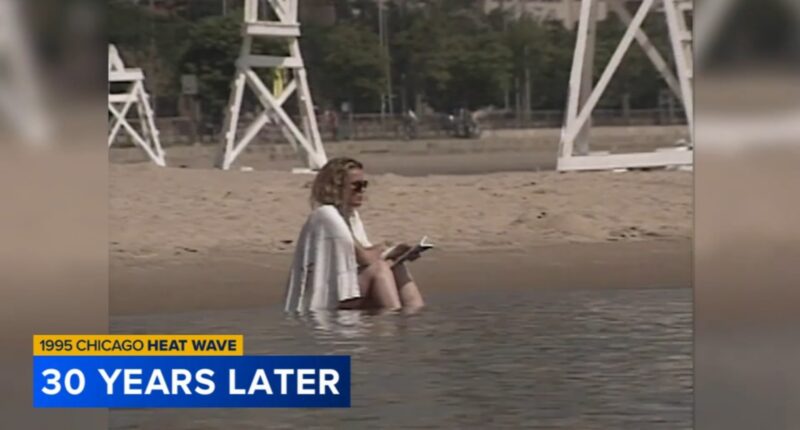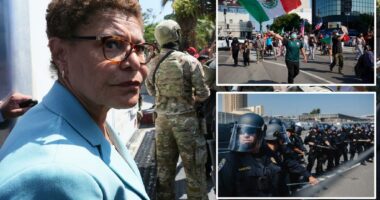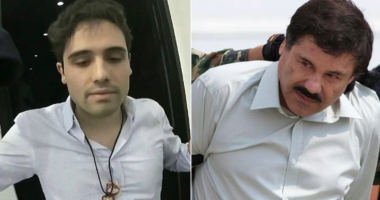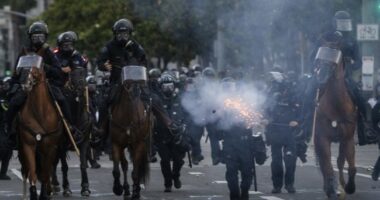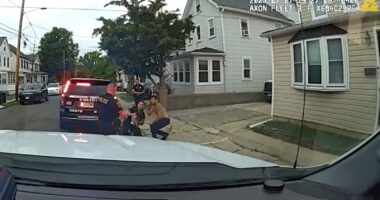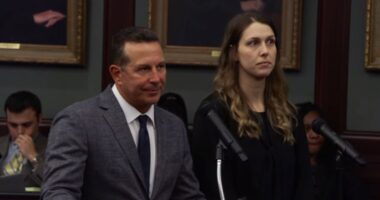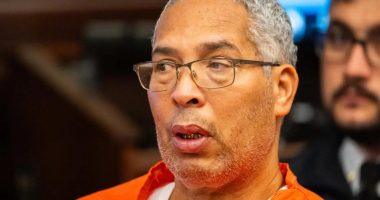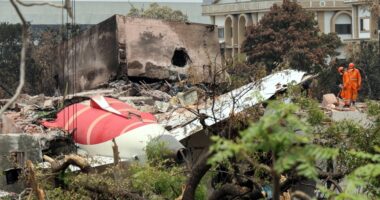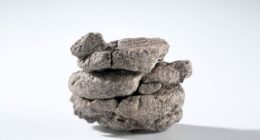Share this @internewscast.com
CHICAGO (WLS) — Some warnings and procedures about extreme heat did not exist in Chicago before the deadly 1995 heat wave.
Still, when temperatures rise in Chicago, for some, it brings back difficult memories and prompts a call for action to prevent heat-related deaths.
ABC7 Chicago is now streaming 24/7. Click here to watch
In front of Quinn Chapel AME Church, an installation remembers those who died in the 1995 heat wave.
On Friday, organizers put ice cubes in each cup to symbolize the 739 people who died. On this 90-degree day, it was not ice for long.
“He shouldn’t have died. He shouldn’t have died of heat stroke,” said community organizer Caesar Thompson.
Thompson was a teenager, but recalled his father’s best friend, who had helped him overcome some personal challenges, died in an attic apartment.
“He deserved better. He deserved better than that. He deserved to still be here today,” Thompson said.
On Friday, community organizers and healthcare workers gathered to advocate for vulnerable Chicagoans.
“We need our city to show our lives matter, that our lives are worth protecting,” said Iliana Haven with Access Living.
“Now, begin to organize people where they want to be organized, on their block in their school, in their mosque, in their workplace,” said People’s Response Network Co-Founder Dr. Howard Ehrman.
In 1995, the nation experienced one of its most severe heat-related disasters. Over a period of five days, extreme heat led to the deaths of 739 individuals. The majority of those who lost their lives were people of color.
The city’s Office of Emergency Management and Communications told ABC7 much has changed to improve warnings communications and options in the heat.
However, some individuals remain critical after having directly witnessed some of the tragedies that occurred in 1995. Vanessa Crim-Willis, associated with the Chicago Chapter of National Black Nurses, was working in home healthcare at the time. She recalls that five of her clients passed away.
“Trying to get clients help was impossible. We sent many to the hospital. Some couldn’t even let us in. We had to call the police to see what was going on,” Crim-Willis said.
At 7 p.m. Friday, there will be a screening at Quinn Chapel AME Chicago of a film about the 1995 deaths.
There will also be a workshop to share ways to stay informed and get help in extreme heat.
Cook County Radar DuPage County Radar Will County Radar Lake County Radar (IL) Kane County Radar Northwest Indiana Radar
Copyright © 2025 WLS-TV. All Rights Reserved.
